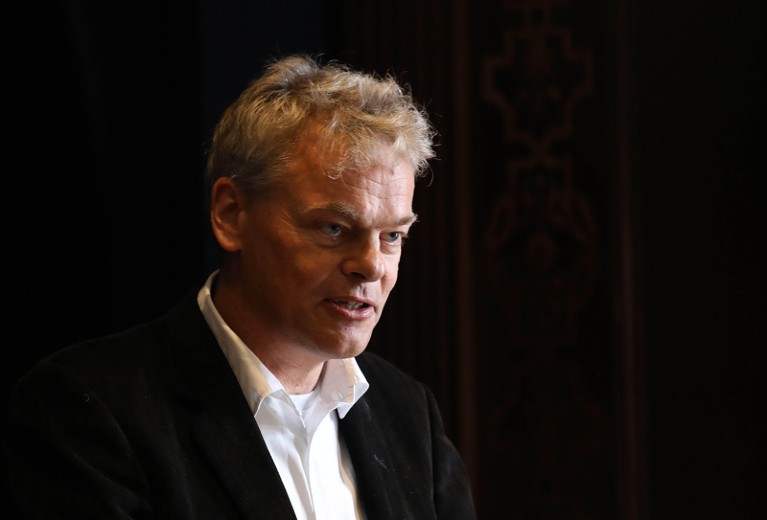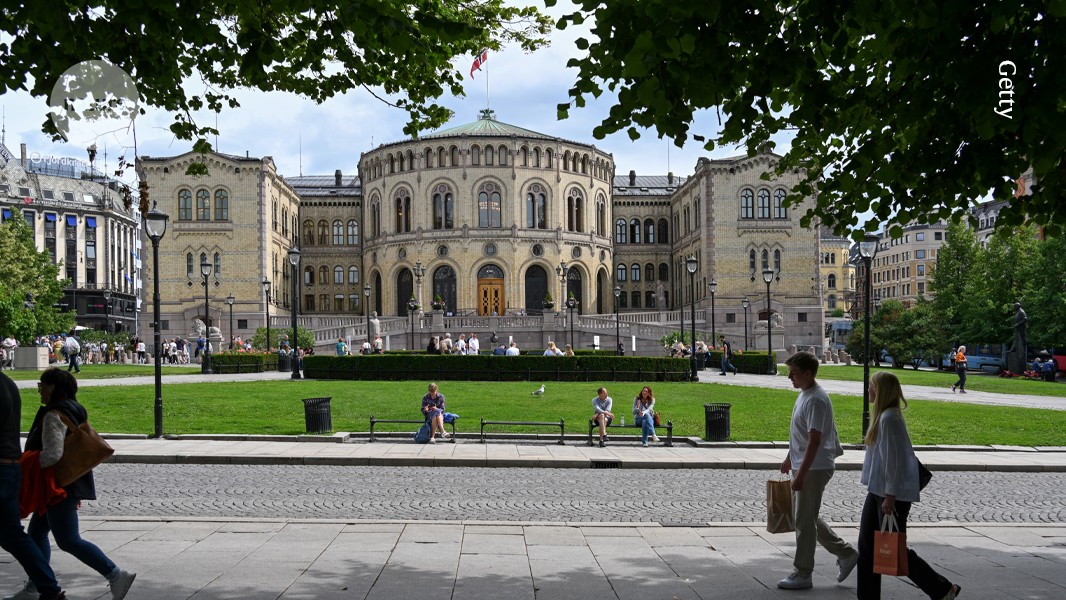
The Norwegian government wants to ensure that English does not replace Norwegian as the main language used in higher education.Credit: Getty
Researchers in Norway have mounted a major legal challenge to the introduction of mandatory Norwegian language classes for foreign PhD students and postdoctoral researchers, arguing that the requirement violates labour laws and threatens to harm the country’s ability to compete internationally in research. Some critics view the law as part of a broader trend of protectionist policies emerging across an increasingly conservative Europe.
All doctoral and postdoctoral researchers hired from August this year who do not speak Norwegian, Danish or Swedish must complete 15 study points of Norwegian language training — about 3 months of study — during the period covered by their contracts.
Last June, Oddmund Hoel, then Norway’s research and higher-education minister, said that the law aims to “preserve Norwegian as a professional language and prevent English from becoming the main language in Norwegian higher education”. The law came into force on 1 August 2024 with a 12-month implementation delay to give universities time to adjust to the regulations.
But critics say the mandatory language courses won’t achieve the intended goal. Instead, they argue, the law could harm Norway’s ability to attract and retain international talent by cutting into research time and making it more expensive for universities to hire from abroad.
“Our principal investigators, postdocs and PhDs come from all over the world,” says Edvard Moser, a Nobel laureate who heads up the Kavli Institute for Systems Neuroscience at the Norwegian University of Science and Technology in Trondheim. “These demands will make it difficult for us to recruit them.”
Legal challenge mounted
The impact of the law could be considerable. In 2022, around 44% of PhD candidates and 74% of postdoctoral fellows at Norwegian higher-education institutions came from abroad.
But the law is unlikely to strengthen Norwegian as a scientific language, says Pierre Lison, an artificial-intelligence researcher at the Norwegian Computing Center in Oslo. The three-month courses will help researchers with basic conversational skills, he says, but won’t provide the level of proficiency needed “to partake in academic discussions or write academic texts in Norwegian”.
Last December, Lison and the Association of Doctoral Organizations in Norway, which represents local interest groups for early-career researchers, filed a complaint with the European Free Trade Association Surveillance Authority, which monitors compliance with European Economic Area (EEA) rules in Iceland, Liechtenstein and Norway, none of which are members of the European Union. The complaint argues that the language policy breaches EEA law, which guarantees free movement of workers within the EU and its partner countries.
Although EEA law allows countries to have language requirements for jobs, such criteria must serve a legitimate public interest, be appropriate for achieving that goal and not go beyond what is necessary. The petitioners argue that Norway’s language law fails on the last two counts.

Nobel laureate Edvard Moser is one of dozens of researchers who are protesting against the language-proficiency requirements.Credit: Philip Toscano/PA Images/Alamy
The law fails to fulfil its purpose because the level of proficiency attained through the three-month courses will be insufficient to conduct academic work in Norwegian, it says. It is also disproportionate, the petition adds, because most PhD students and postdocs in Norway don’t need to speak Norwegian to do their jobs, and because it creates additional costs for universities, which will not be given extra funding to compensate.
“Institutions are expected to pay for it but don’t have the resources, so they pass it on to research groups,” says Moser, one of 26 named researchers formally backing the complaint. He adds that using research grants for language courses could violate grant terms.
Protectionism in disguise?
The surveillance authority could respond in several ways, Lison says. If it finds an infringement, it typically starts by discussing possible changes with authorities in Norway. If that fails, it could issue a formal opinion requiring Norway to comply with EEA law. The final step would be court action, although Lison hopes “it will not go this far” and the ministry will drop the requirement.
The complainants’ preferred solution is to make offering language courses mandatory for universities but to allow PhD students and postdocs to choose whether to enrol. But Lison thinks there is an ulterior motive to the law that goes beyond wanting to protect the Norwegian language.
“This is essentially a protectionist employment policy in disguise,” he says. The law will lead to universities favouring domestic candidates when filling positions, because they will cost less and be able to assume a higher teaching load than will foreign candidates who need to take the language classes, he says.
Lison draws a parallel between Norway’s law and a plan submitted by the Dutch government to its parliament last May that aims to curb the number of undergraduate courses offered in English in the Netherlands. Ostensibly a move to bolster language skills, the proposal is “essentially a way to reduce the number of international students” and address the housing shortage in university cities such as Amsterdam, he says.
In a statement, the Norwegian Ministry of Education and Research told Nature that it does not think the regulations are in breach of EEA law, and that its aim is to “preserve Norwegian as a fully functional national language”. Part of this means ensuring that teaching is done primarily in Norwegian, it said, however, “In recent decades, a large share of the newly recruited academic staff has been non-Norwegian speakers”.


